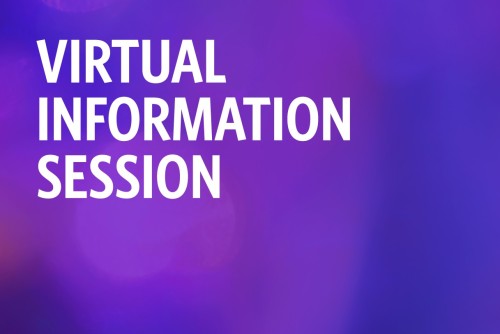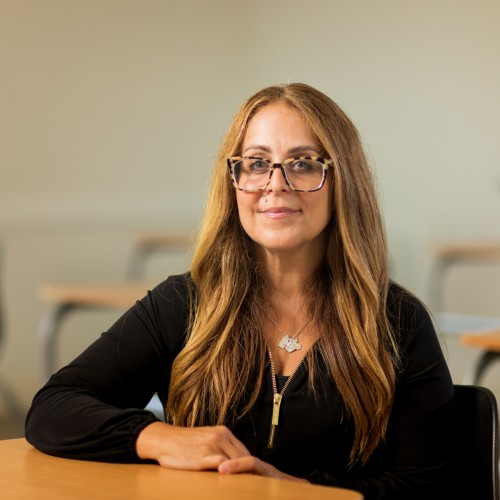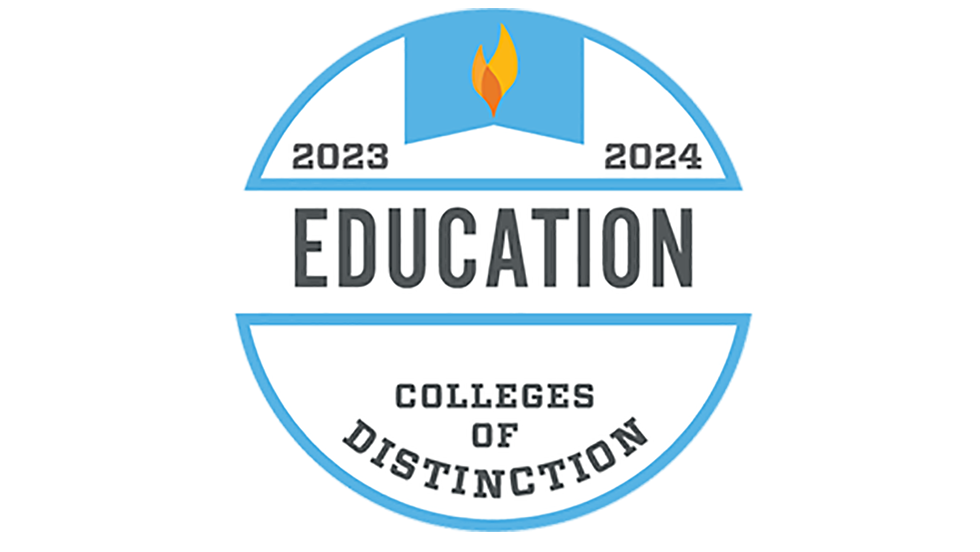Master of Education (M.Ed.) in Autism
Stonehill's Master of Education (M.Ed.) in Autism prepares educators to support the complex needs of autistic students using democratic education, self-advocacy and social justice as a critical lens in their work. Candidates who qualify with state requirements can also earn the Massachusetts Autism Endorsement for Educator Licensure upon completion of the program.
Fully online and hybrid options available.
Upcoming Application Deadlines
- Fall Semester: August 1, 2025
- Spring Semester: January 1, 2026
- Summer Semester: May 1, 2026
Earn Your Master's in Education with a Specialization in Autism
The M.Ed. in Autism program prepares teachers to be leaders and critical thinkers. Schools today are complex and diverse communities — reflecting a landscape rich with individual differences. Educators in our program are prepared using a unique combination of theoretical and practical experiences. This approach ensures their ability to create and lead equitable spaces where difference is valued while at the same time preparing them for the realities and challenges of the classroom and the profession.
In this program, students will:
- Develop critical knowledge of the history, theories and prevalence of autism
- Develop expertise in a range of educational and supportive practices
- Apply concepts of self-advocacy, advocacy and quality-of-life in educational settings
- Analyze approaches to, theories of, and supports for autistic individuals through the lens of neurodiversity
- Evaluate assumptions, biases and characterizations of autism through sociocultural and self-advocacy lenses
All students take five core inclusive education courses as well as the coursework for their community education specialization. For the Autism specialization, courses prepare educators to create and lead an inclusive environment for diverse student populations. This program can be completed fully online or with a mix of in-person and online courses.
Why Graduate Teacher Education at Stonehill
- Focus on educational equity and diversity helps better prepare educators for the modern classroom
- A core of foundational courses ensures our graduates gain the skills to teach all students
- Faculty with well-established expertise in field
- Experiential learning via research, partnership and community opportunities
- Specialized student support framework guides students through program requirements and career preparation
Upcoming Graduate & Professional Studies Events
-
Virtual Information Sessions
Join us for a virtual information session or drop-in session to learn more about our master’s degree and certificate programs.
-
Teacherpalooza: A Teacher Appreciation Event
Join us Wednesday, June 17, 2026, for Teacherpalooza, a teacher appreciation event hosted by Stonehill Graduate Teacher Education to thank educators for their hard work.
Sample Courses
Social Understanding: Stress, Anxiety, Trauma
Self-Advocacy, Quality of Life and Transition
A Flexible M.Ed. Program Built to Fit Your Life
There are a variety of ways to pursue your degree, including:
- Part- or full-time
- On- or off-campus
- Late afternoon, evening and weekend courses
- Fully online and hybrid options
Master's students are required to complete 30 to 36 credits.
Studying Education at Stonehill
Stonehill College's graduate teacher education programs prepare educators to lead inclusive learning environments. The College offers master's degree, teacher licensure, community education and graduate certificate program options.
Schools today must strive to be inclusive environments, and educators in our program are prepared to be leaders in creating equitable spaces where difference is valued.
Graduate Teacher Education at Stonehill
Stonehill College's graduate teacher education programs aim to prepare knowledgeable, reflective, caring and flexible educators who embrace learning, scholarship, community and advocacy in their work. Social justice and democratic education are at the center of our work and underpins all programs, courses and experiences. We believe education can disrupt systems and processes that perpetuate injustice and inequity and embrace diversity and individuality as strengths.
We advance our mission by modeling the creation of democratic spaces in the graduate classroom that reflect equitable, accessible and inclusive learning environments where students' voices and perspectives help to shape the construction and the provision of their learning.
Three tenets guide our program philosophy:
- Social justice education
- Democratic education
- Anti-oppressive education
Graduate Teacher Education Program Outcomes
Our graduates
- Foster care, connection and community with students, colleagues and families
- Promote inclusivity, diversity and equity in educational spaces
- Work to disrupt systems that perpetuate oppression and inequity
- Embrace teaching practices that foster social justice and democracy
- Lead by making education accessible for all learners
- Elevate student voices and perspectives in education
- Act purposefully to continue to learn and contribute to the profession
Rigorous Academics and the Support to Succeed
Stonehill’s graduate teacher education programs recognize the challenges graduate students face in prioritizing work, family, personal and graduate school commitments. Our Graduate Student Support, Access and Success (SSAS) Framework is designed to support students’ success from program start to finish.
Specifically, this approach provides:
- A proactive vs. reactive framework for supporting graduate students’ variable needs within their program
- Clear benchmarks for assessment of candidate readiness
From the admission process to graduation, students have a clear understanding of both expectations and the support available to help them achieve their goals.
Education Department earns endorsement for undergraduate programs
Contact Information
Graduate & Professional Studies Admission assists students as they explore graduate and professional opportunities offered at Stonehill College.
Meet the Director of Graduate Teacher Education




